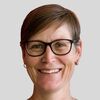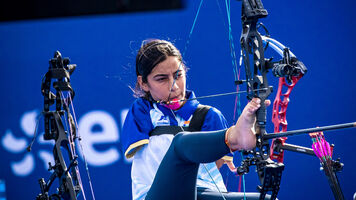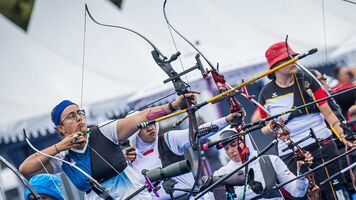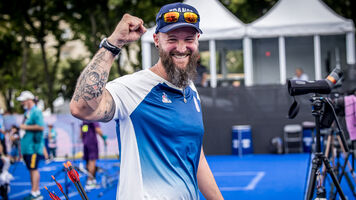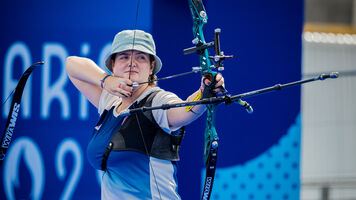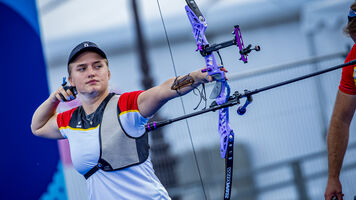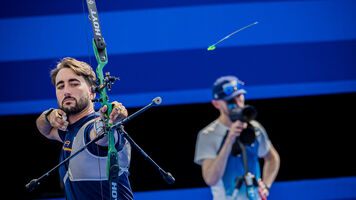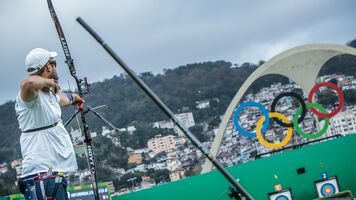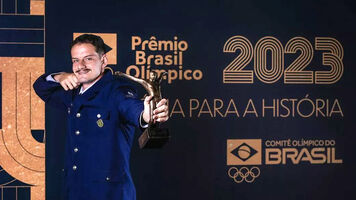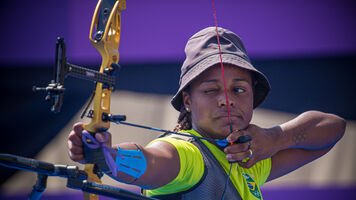Representing France abroad in 2023 at student age
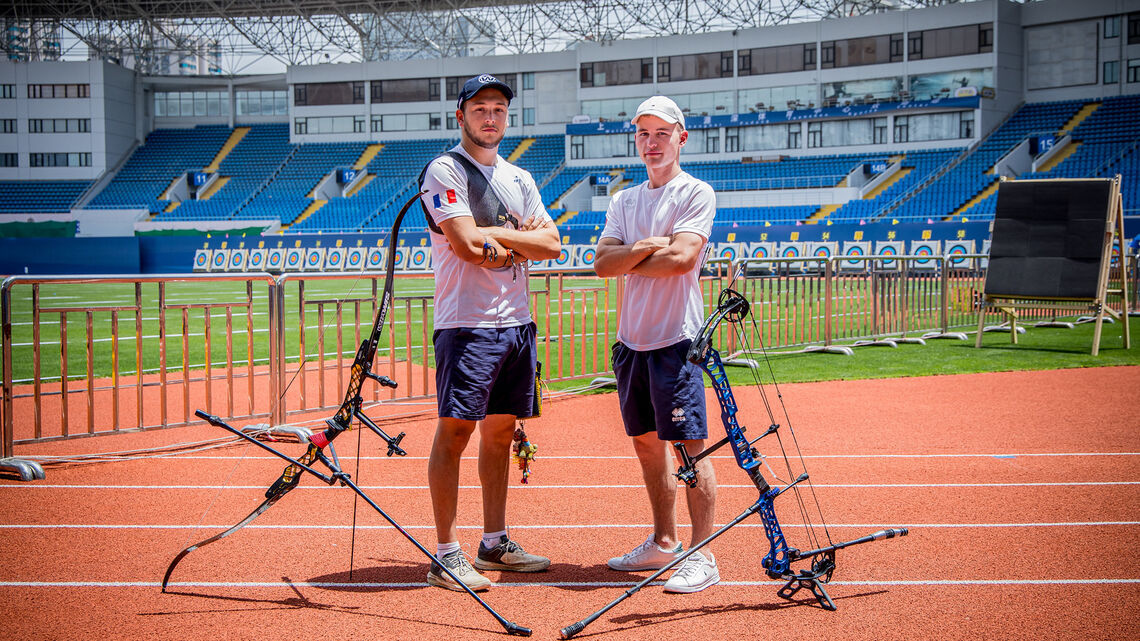
The new faces of French archery?
Victor Bouleau and Nicolas Bernardi are in their student years, aged 18 and 20, and they compete abroad for France in 2023.
Bouleau, the compounder of the pair, made a bold decision ahead of the season.
After high school, he started studies in mechanical engineering. He did not like it and stopped to do full-time archery.
“This year was a pivotal year for me,” he explained. “I had to make some important choices about my sporting and academic career, which paid off in the trials.”
Under the guidance of compound national coach Sebastien Brasseur, he capitalised on youth competitions experience, such as the Gymnasiade in Normandy last year or the Indoor Archery World Series Youth Finals in Nimes this January where he won compound under 21 men’s gold, to finish third in the French selections in March.
“I would say that I am very happy with this result, but it is only a step towards achieving my goals,” said he, who started archery in 2016, aged 12, and shot barebow until 2020 before being attracted by the very accurate side of the compound.
Two years older, recurver Bernardi has a slightly longer track record from youth level after starting archery when he was seven in a village festival and later getting a taste for competition.
Now in his first year of life sciences at the University of Lorraine, after passing a general scientific baccalaureate last summer, he has been benefiting from the elite status.
Special student conditions, with a curriculum spread over several years, have helped optimise his training to become one of the top four archers in the national trials.
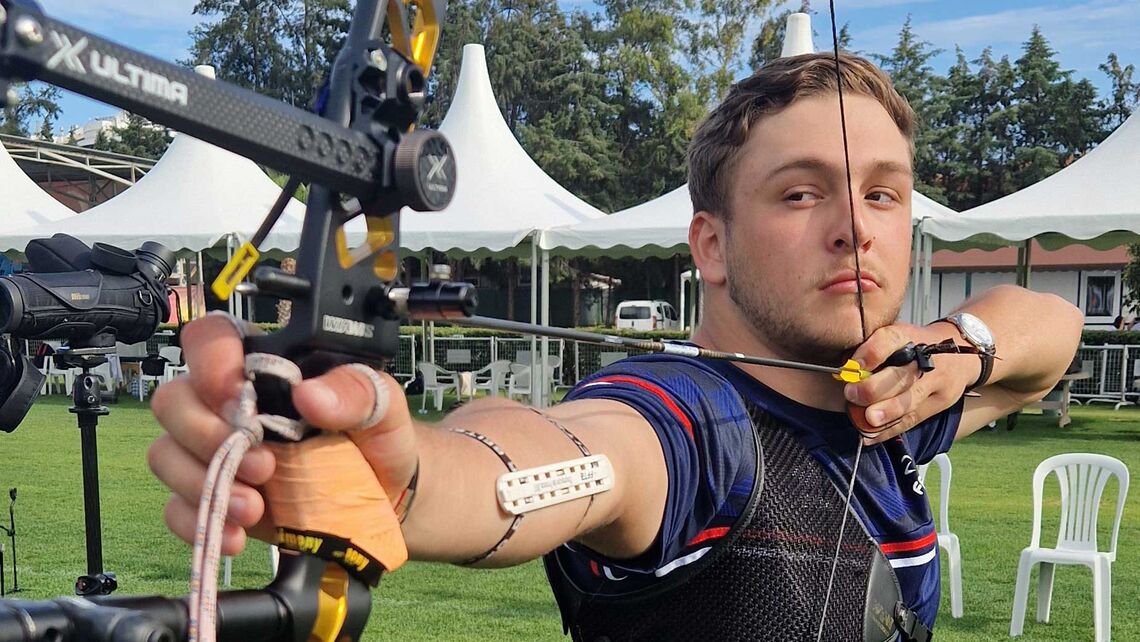
Neither seemed impressed by making the big leap into the Hyundai Archery World Cup.
They shot their best international qualifying scores at their first circuit’s cap in Antalya in April, just one month after being named in the team for 2023.
“The general atmosphere is incredible,” said Bernardi, who seeded 27th of the recurve field with 661 points. “All this life and effervescence does not leave you indifferent.”
But what struck him most was the level and density on the competition field.
His fellow countryman could indeed measure the gap between the junior level and the elite.
Although producing his best score for the 72-arrow 50-metre round, Bouleau’s 702 points had him ‘only’ qualify 44th, as a huge 42% of the field – 49 compound men and 15 women – broke the 700 mark in the season’s opener.
“I think this first experience was very positive for me and I’m satisfied,” he said. “I managed to handle the pressure and produce my usual shot.”
The French compounder won his first match on the Archery World Cup tour in a tie-break but was stopped by eventual stage winner Jozef Bosanski by three points in the second round, finishing 17th overall.
“Of course, you always want to be ranked as best as possible, so I was a bit disappointed, but I learnt a lot and gained a lot of experience during that week of competition,” Bouleau said.
Bernardi also passed through one round with a first win in straight sets, before losing to Tokyo Olympian Nicholas D’Amour, world number sixth, in a tight shoot-off. He finally ranked 33rd in Antalya.
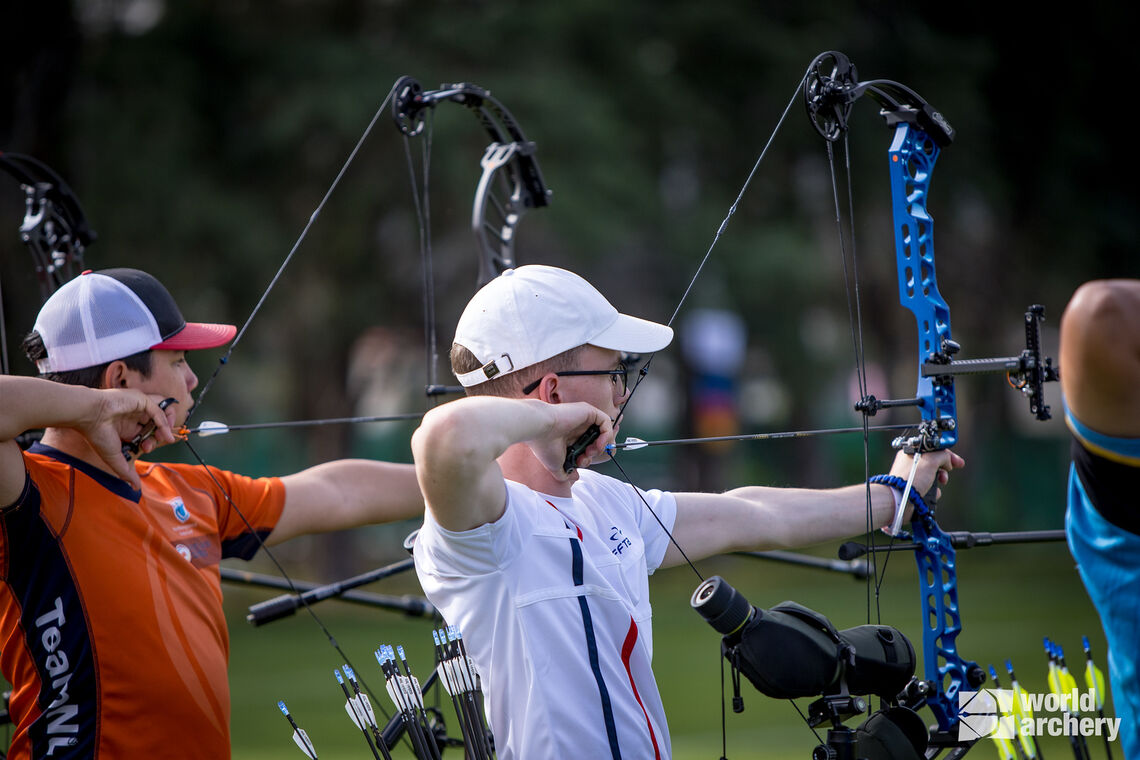
Bernardi’s individual outcome for their second World Cup experience at the second stage in China in May was identical, 33rd, after taking on – and losing – to a two-time team Olympic Champion in Kim Woojin.
“Shanghai leaves a strange taste, I remain a little hungry,” he said on his return to France. “I feel like I gave it my all and the results didn’t necessarily follow.”
There, he also got a taste of the team event as third best qualifying Frenchman behind Baptist Addis and Olympic silver medallist Jean-Charles Valladont. The trio lost after a shoot-off in their first match against Spain, but that was still a great learning experience.
“I can see where there was improvement compared to Antalya but also where there are still gaps to work on,” Bernardi said.
Bouleau also had “a bit of trouble getting into the swing of things” in China in quite windy conditions compared to Türkyie.
The compound archer ended nearly 30 points behind the top qualifiers, before exiting in the first elimination round.
“I really didn’t shoot well, but I really enjoyed shooting there, the city was magnificent,” he said. “I’ve got a lot of things to work on for the future and to be ready to perform in Medellin.”
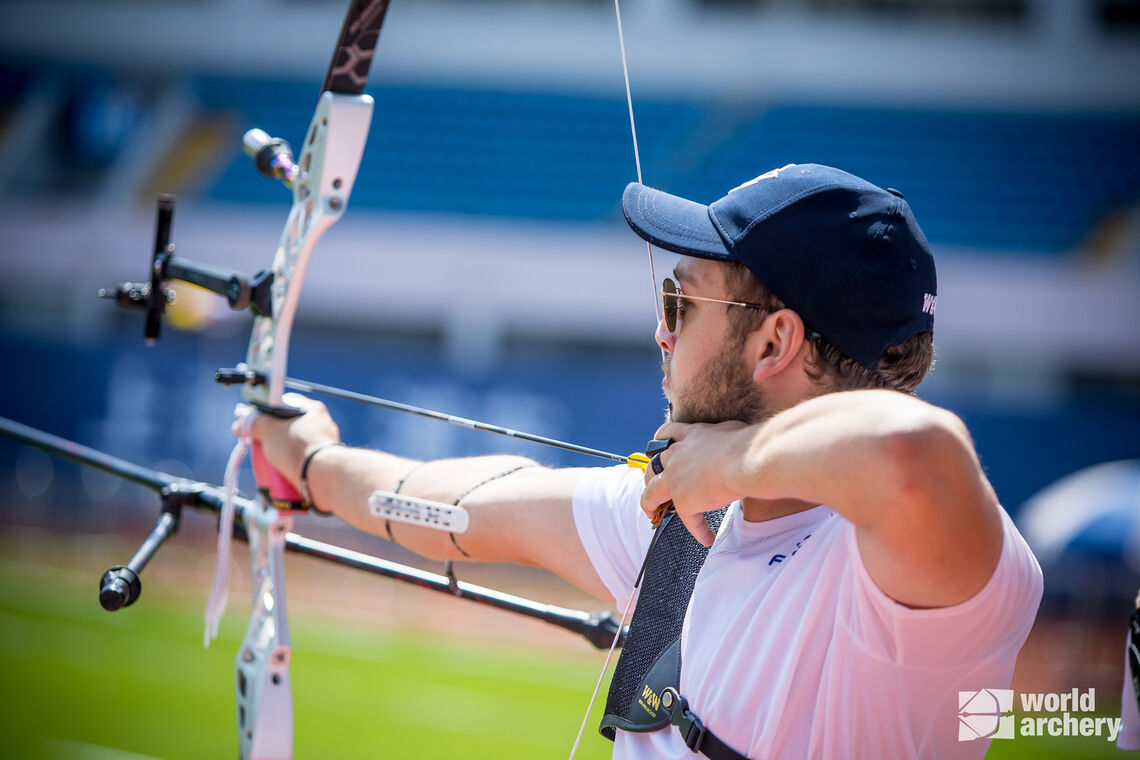
The third stage of the Hyundai Archery World Cup comes this week already, and then there are still busy months ahead for the two young Frenchmen.
Although Bernardi‘s academic year is spread over two years, affording him to train 30 hours per week while doing half of the curriculum each year, he will not take any final tests in 2023.
A busy competition schedule and training at the INSEP – the national sports centre in Paris – between events does not allow him to neither go to class, nor follow his distance learning courses.
Bouleau still plans to resume his studies in September – this time at a special business school for elite athletes, which integrates training availability into scheduled studies.
The compound archer, who has just been named for the World Archery Youth Championships in Ireland this summer, hopes that new academic conditions will give him enough free time for practice, high-level performance and international competition.
